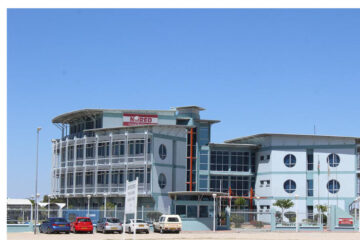Stefanus Nashama
Omaheke Regional Governor, Pijoo Nganate, is calling for a reform of the government fleet system, citing its current strain on government garages, hindering their efficient operation.
Nganate made these remarks while discussing the impact of the government moratorium, which has restricted the procurement of vehicles for government organizations, ministries, and agencies. This discussion took place during an engagement with the National Standing Committee on Transport, Infrastructure, and Housing.
The committee’s purpose is to assess and investigate the impact of the moratorium on all government-related offices in the Omaheke region.
Governor Nganate believes that government garages can perform better but notes that they are currently centralized in Windhoek rather than being managed at the regional level.
“Government garages can achieve better results if operated at the regional level. This would expedite the repair and maintenance of government vehicles,” he emphasized.
Nganate pointed out several issues that need to be addressed to make the vehicle procurement and maintenance system function more efficiently. These issues include the unavailability of spare parts in stock, delays in vehicle repairs, and the awarding of maintenance tenders to private companies.
According to Nganate, it is currently prohibited to transfer parts from one government vehicle to another, resulting in prolonged waiting times for repairs.
“When a government vehicle breaks down, we have to wait for someone from Windhoek to assess the vehicle, return to Windhoek, wait for the government to procure the necessary parts, and then tender the repair work to a third party. This entire process leaves vehicles stranded in the garage, negatively impacting the efficiency of the system,” he explained.
Nganate proposed that the government offer opportunities to mechanical engineering artisans to repair government vehicles as part of their job attachments.
He believes that involving students in this manner can help alleviate the issue and improve the government fleet system.
“We do not need to have vehicles sitting idle; students can handle the job, and I am confident this approach will be effective,” he stated.
Furthermore, the governor highlighted the lack of action by artisans at the Ministry of Works and Transport in repairing vehicles since most maintenance work is outsourced through tenders.
Additionally, Nganate raised concerns about the state of the roads in the region, describing them as in poor condition and posing risks to people’s lives, especially during long-distance travel.
“There is an urgent need to upgrade the roads in the region because they are in subpar condition. These roads can damage vehicles and lead to accidents,” he said and added: “Not all vehicles can navigate these roads; only robust ones can withstand the conditions.”




